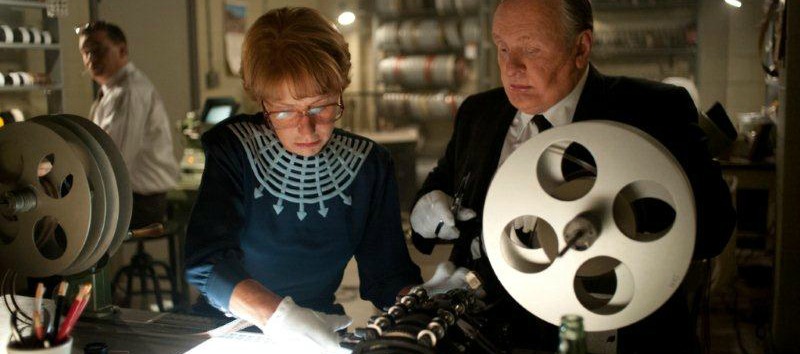Hitchcock
If you’re looking for thrills, you’ll have more fun with watching Psycho itself.
Plot summary
A love story about one of the most influential filmmakers of the last century, Alfred Hitchcock, and his wife and partner Alma Reville. The film takes place during the making of Hitchcock's seminal movie Psycho.

A Young Conservative (or Conservative Future member, as they now go by) once told me that the Rolling Stones were his favourite band. I asked why. “They’re a heritage group,” came the ingeniously conservative reply. Very well, but what about Hitchcock?
This sort of osmotic affection shows the natural drift of popular culture: artists can go from vagabonds to visionaries in public opinion polls within a matter of years. This ability to create and cultivate a taste before we even knew we could develop it is all part of their magic. The flip-side of this legacy is that any chancer can lay claim to it, and in doing so add distortion rather than insight to a reputation. It seems that although Alfred Hitchcock’s legend lives on with great vitality, he’s struck it rather unlucky lately. Depicted as a wry pervert by Toby Jones In the BBC/HBO’s Christmas 2012 drama The Girl, he appears in Hitchcock as a moderately humorous yet aggravating filmmaker and husband. The result is curiously bland, given the subject.
The action revolves around one of his greatest achievements, Pyscho, a black and white film made in a technicolour age that parades a litany of indecorous material across the screen – sex outside of marriage, theft, voyeurism, murder, incest and madness. As Hitchcock shows us, studio execs wouldn’t associate with such outre subjects, leaving Hitch to fund the production himself. Yet his artistic vision ensured that it was a critical and commercial smash, which influenced countless psychological and slasher horrors – not least the two other great Ed Gein-inspired classics, The Texas Chainsaw Massacre and The Silence of the Lambs. It made trash into art. The trouble with Hitchcock isn’t that director Sacha Gervasi makes that art back into trash – he makes it into something far more pedestrian. His one attempt at shaking up the storyline – by having Hitch dream of Ed Gein’s tortured descent into madness – is not a success.
It is a well upholstered biopic in some respects; the period detail is glamorous and the screentime devoted to Alfred and his wife Alma’s (Helen Mirren) scratchy yet creative relationship reflects the impact that she had on his work as an advisor, screenwriter and editor, as well as a partner. Yet though Scarlett Johansson and Jessica Biel are highly billed, they are lightly used, and Toni Colette is wasted as Hitch’s PA, whose lines reduce her to a cypher for wider film industry opinion.
Mirren and Hopkins represent their real-life counterparts with old-hand efficacy, but their strong performances are let down by a contrived affair subplot and hokey lines; for example, Hitch wonders aloud “Am I making a terrible mistake?” These reverse-engineered lines crop up throughout the film, heavy-handedly assuring the audience that we’re all in on the joke of the film’s looming shock success. For a deeply ordinary feature, Hitchcock’s continual hum of self-congratulation feels incongruous. It’s the cinematic equivalent of backing the outside chance at the races after it has won, or, indeed, relishing Rolling Stones songs if you are a young Tory. There’s no harm in it, but no edge and no vision in it either. It’s ironic to see the ‘Master of Suspense’ being celebrated in such a soporifically cosy fashion.
This is a golden period for Hitchcock aficionados, thanks to the sudden blossoming of the long-rumbling critical appreciation of his ouvre. However, Hitchcock is a pale shadow of the original material – if you’re looking for thrills, you’ll have more fun with watching Psycho itself. And if you want a glimpse of the psychology that drove the great man himself, there’s always Vertigo.











COMMENTS